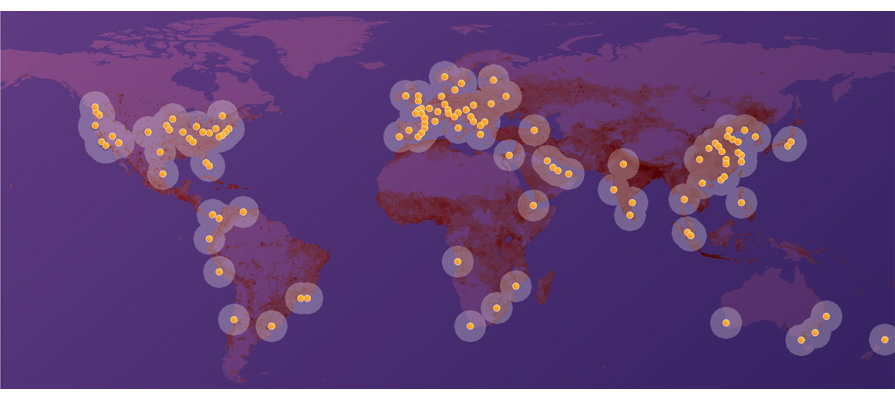
Cloudflare provides CDN, DDoS mitigation and others. But it wants to be more than just that.
As part of an experiment being conducted in partnership with the Asia Pacific Network Information Centre (APNIC), the company launches a new public DNS (Domain Name System) service using the network address 1.1.1.1, echoing the date of launch at April 1st.
It's memorable, and took the same strategy as Google’s 8.8.8.8 DNS resolver and the Global Cyber Alliance’s 9.9.9.9.
The DNS by Clouflare aims to improve performance, security, and privacy.
DNS is essentially the web's phonebook, and every web traffic runs through it. Every website is located at an IP address, which is a string of digits that denote the exact web location of the server. Because remembering a long string of IP addresses like 104.28.17.187 would be difficult, instead, websites have domain names like Eyerys.com which is stored in a DNS database alongside the IP address.
Usually DNS is managed by ISPs as they have their own DNS resolver. This makes it easy for users to hook up to their service and get online. However, third-party options have been growing in popularity. They allow users to route their traffic away from ISPs into theirs for faster connection and better security. And Cloudflare's version of DNS, aims to do just that.
Previously, the company has offered authoritative DNS services. But with the 1.1.1.1, it's also providing a consumer DNS resolver service. The company promises to not monitor DNS queries users have made through its servers, wiping logs within 24 hours and not recording any IP addresses.
Because there are still chances that ISPs can see the internet domains users are visiting although the users use 1.1.1.1, Cloudflare is also supporting a number of emerging DNS security standards, starting with something called DNS Query Name Minimisation.

The Cloudflare-APNIC experiment uses two IPv4 address ranges, 1.1.1/24 and 1.0.0/24. Cloudflare's DNS uses two addresses within those ranges, at 1.1.1.1 and 1.0.0.1.
While 1.1.1.1 is meant to have been used only for research, the Cloudflare-APNIC experiment has revealed that many have been using it for hacking and breaching internet routing standards. It has also been used by VPN as its virtual endpoint, the default logout from a controller, used by hospitality industry environments and more. Huston himself has seen Wi-Fi hotspots using 1.1.1.1 as their router address.
In short, there are a lot of traffic that hits that address.
"Some folk, without any material to justify it, started configuring 1.1.1.1. Now, I can start using your IP address, I suppose, but we're both going to have a problem," Huston said.
APNIC's chief scientist Geoff Huston in a blog post, said that:
In the experiment, Cloudflare analyzes any of the junk traffic, and Huston said that it can still be measured in multiple gigabits per second.
"Our initial work with it certainly showed it to be an unusually strong attractor for bad traffic. At the time we stopped doing it with Google, it was over 50 gigabits per second. Quite frankly, few folk can handle that much noise," said Huston.